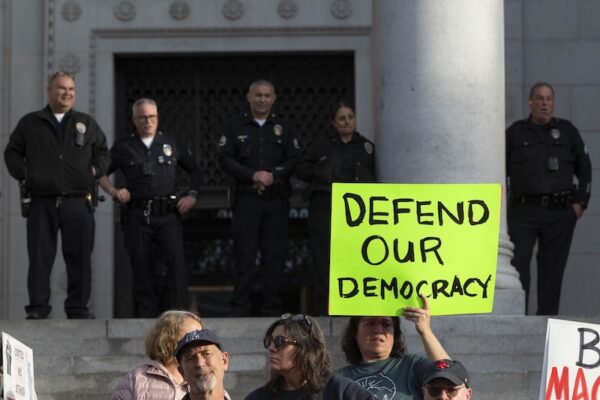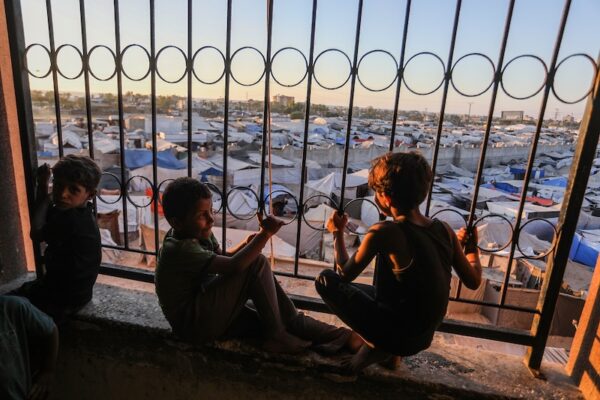The Arab Spring and the “Autumn of the Patriarch”
In “The Autumn of the Patriarch,” Gabriel Garcia Marquez tells us a story of an imaginary country with a dictator that lives nearly 200 years and the society he ruled. While recounting the irrationality, despotism, paranoia and tyranny of the dictator we also read about the society that led to the rise of such dictators.
That society actually allowed the dictator to rule the country as if he would never die and believed that the dictator could be in some instances omnipotent and have God-like qualities. The people of the country even had difficulty in believing that the dictator really died even after they saw his half-mutilated body on the floor of the presidential palace. This ultimate belief and irrational affection or fear of a dictator by the suppressed people made the dictator more powerful and fearless and unrealistic about his expectations from the people. The mutual enforcement of suppression and obedience created almost two centuries of authoritarian rule for the people of this imaginary country.
Marquez’s story is of course fiction and throughout the story we encounter different magical characteristics, including the age of the dictator. However, the story also tells us some important attributes of dictators and the societies they rule over. In fact although the dictator in the story was associated with different Latin American dictators, in reality Marquez with some broad strokes tells us about dictators across the world and in the same way tells us of contributions made by some segments of society which foster the rise of dictatorships.
The historical background, colonial legacy and institutions within a country can lay the groundwork for the rise of authoritarian leaders. However, another very significant factor that gives rise to dictatorships is the society itself. The political attitude of people in a country plays a significant role in the emergence, rise and consolidation of dictators’ powers. The society in this sense can become a facilitator of government oppression in a country and can contribute for the endurance of authoritarianism.
The developments in Egypt over the last year demonstrate how some segments of society can be equally responsible for the tragedy taking place in this country. The betrayal of some groups in Egypt to the democratic process by trying to replace the democratic process with street politics and alignment with former regime elements played a critical role in the emergence of reverse wave of democratization in the country. In this period of counter revolution, the former regime elements, which still hold a considerable amount of power through institutions under their control, use some liberal intellectuals and activists to interrupt the democratic process and bring the power back to their own hands. When this machinery was put into action we saw that writers like Al-Aswany, who used to end his articles with the phrase “democracy is the solution,” became people who support the military as the solution of the problems in this country.
Similarly we see in the award winning documentary “The Square,” young liberals were basically scapegoating the Muslim Brotherhood for every political problem that they faced in the country while at the same time trying to bring down a democratically elected leader of the country using street protests in the name of democracy.
Former regime elements with the help of the liberals were able to bring down President Mohammed Morsi and created a new military junta in the country which becomes almost a repetition of the Mubarak era in terms of limitations to basic rights and liberties. After terrorizing the opposition, silencing media and criminalizing dissent the junta realized that “the time was ripe for an election.”
As we all know by now, the unfair elections brought a “landslide victory of 97 percent” for President Abdel-Fatah el-Sissi. Those who protested against Morsi for not being democratic enough still did not criticize or protest the undemocratic elections that took place in the country. Those who protested Morsi for not standing up enough against the military did not say much about the coup or the election of Sissi as the president of the country. Those who protested Morsi for being too “Islamist” were content with the support Salafists gave to Sisi.
Some segments of society even celebrated the election on the streets of Cairo which looked like a parade of Stockholm Sendromists. Now with the consolidation of Sissi’s power, we will see the reaction of Egyptian people to the reincarnation of Mubarak regime. Egyptian society will see whether they can ask of Sissi what Morsi could not deliver. We will all see what will be the consequences of such an attempt to search for rights and liberties in Egypt.
This article was originally published in Daily Sabah on June 9, 2014.


















